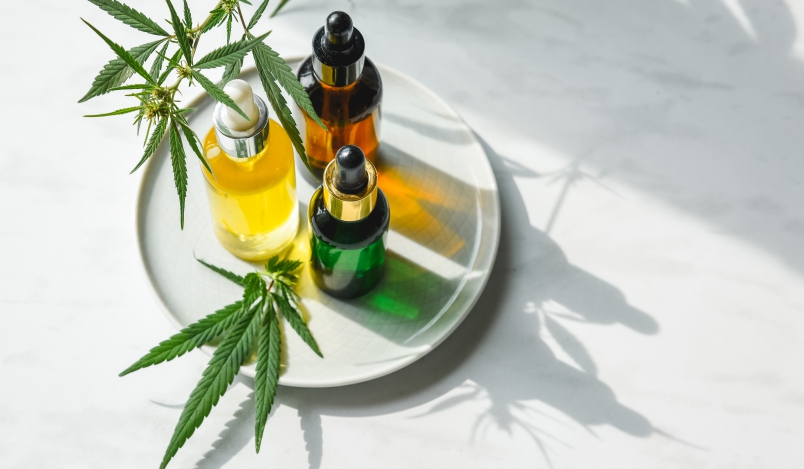
FDA regulation of CBD products faces new challenges as the market develops.
Move over Pfizer, Moderna, and Johnson & Johnson: Some purveyors of cannabis products announced that their products provide a hipper, happier cure for COVID-19.
In March 2021, the U.S. Food and Drug Administration (FDA) issued a warning letter to Cannafyl, a cannabis product company, because it marketed its products containing cannabidiol (CBD) as products that could prevent or cure COVID-19. These products are still available for purchase, but Cannafyl’s website now contains a disclaimer noting that its CBD products “are not intended to diagnose, treat, cure or prevent any disease.”
When the landscape for products in the food or health sectors changes, FDA often decides which products are safe for Americans. But recent developments show that markets tend to move faster than regulators, raising questions about what products FDA should leave the market free to make available to consumers.
Over the past several years, CBD, one of the compounds found in marijuana that is psychoactive but does not produce a “high,” has been used in products as varied as chocolate, mascara, and lotions.
Some studies have concluded that CBD mitigates ailments, including anxiety, insomnia, chronic pain, and addiction to substances such as nicotine and heroin. FDA, however, has warned consumers that CBD can have potentially harmful side effects, such as liver injury. At a minimum, the potential for harm from CBD seems to call for balancing costs and benefits of specific products.
Sales of these products are illegal under federal law enforced by FDA, but because FDA is not able to crack down on every sale of a food product or dietary supplement containing CBD, companies continue to sell CBD products. Furthermore, many of these products reportedly contain dangerous ingredients or are marketed falsely as cures for diseases such as COVID-19.
FDA studies which CBD products fit within the current legal framework and which pose excessive health and safety risks. The growing market for marijuana-related products, however, generates financial opportunities that create pressure on Congress and states to expand options for legal sales regardless of FDA’s findings.
In 2018, President Donald J. Trump signed the Agriculture Improvement Act of 2018 into law. Under this law, CBD products containing less than 0.3 percent tetrahydrocannabinol, the compound that produces a “high,” are no longer classified as controlled substances that are categorically illegal under federal law. Instead, the 2018 legislation authorizes FDA to regulate sale of CBD products pursuant to the Federal Food, Drug, and Cosmetic Act (FDCA).
The FDCA makes it illegal to sell food or dietary supplements that contain an “approved drug” ingredient without explicit FDA approval. When FDA approved Epidiolex, a CBD seizure medication, CBD became an approved drug ingredient. Although this action makes use of CBD in most products illegal without FDA approval, FDA has not issued a regulation drawing clear lines between approved and unapproved uses of CBD in other products.
Even though selling CBD products without FDA approval is technically illegal, companies continue to sell them in what has become a burgeoning U.S. market for CBD products. This growth in current and potential earnings creates strong financial pressures for making CBD uses lawful.
FDA has explained that its delay in issuing regulations on CBD is necessary to investigate the side effects of CBD. It takes time to conduct research that could provide FDA with enough evidence to decide whether a drug ingredient should be approved for use in food products—and, at present, research on the benefits of CBD is mixed.
FDA formed a CBD Policy Working Group in April 2019. In the ensuing year and a half, FDA has issued a few non-binding guidance documents related to CBD products—but, citing the need for additional research, no regulations.
Limits on FDA’s research budget have posed problems during the time FDA has had CBD-related issues on its docket because FDA’s resources have been strained by demands associated with the COVID-19 pandemic. Even without adopting more detailed directions on many CBD-containing products, FDA has warned some companies not to market unapproved products with assertions that the products’ CBD ingredients help treat Alzheimer’s Disease or stop cancer cell growth.
As FDA considers issues related to CBD products, some state governments are endeavoring to substitute their own rules for these products, and Congress is considering steps to reduce or remove FDA constraints. States such as California have passed CBD-related guidance that appears to contradict the FDCA’s ban on the use of CBD in food and dietary supplements. Meanwhile, other states are taking actions to crack down on improper sales of CBD products. For example, last April, New York’s attorney general sent a cease-and-desist letter to a CBD company that claimed its products would help fight COVID-19.
Some members of Congress have introduced bills to address CBD products. Two bills introduced this year in the Senate, the Hemp Access and Consumer Safety Act and the Cannabis Administration and Opportunity Act, and one in the House of Representatives, the Hemp and Hemp-Derived CBD Consumer Protection and Market Stabilization Act of 2021, would change federal regulation of CBD products. The proponents of these bills argue that there needs to be federal legislation or further FDA action to clarify the treatment of CBD products under federal law will be treated.
Yet it is equally evident that, without regulatory enforcement actions by FDA, the budding market in CBD products will flourish. Those who are producing and selling CBD products and those who seek access to them will likely endeavor to secure favorable changes in law. Even if there are sound reasons for FDA to take more time before adopting regulations for these markets, delay almost certainly will give rise to conditions that make a cautious, product-by-product determination of legality more politically difficult for FDA.
In the end, time will tell whether FDA believes in the high hopes for CBD—and, if so, how FDA will change its regulatory approach.



